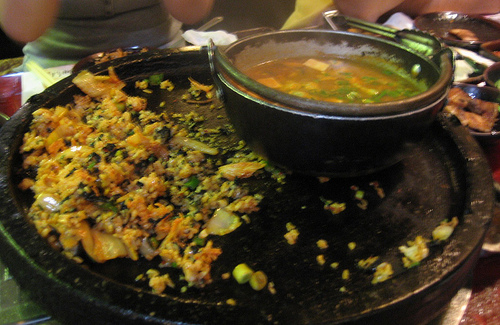An effort to eliminate "xian shui mian" or "saliva noodles" said to be invented by King Wen of Zhou, founder of the Zhou dynasty over 3000 years ago, is being encouraged in  Changxing town of Meixian county in northwest China’s Shaanxi province.
Changxing town of Meixian county in northwest China’s Shaanxi province.
The Chinese Business View reported on Thursday that the township government has launched a 500 yuan award for the first six families that do not treat their guests to "xian shui mian" during the New Year or Spring Festival.
Ma Binglin, an official with Changxing township government, further explained that they decided to alter the village dietary habits for the sake of their health since the noodle soup is reused many times and contains each diner’s saliva. The repeated use of the soup has brought about the name "saliva noodle," and is considered unsanitary.
"Saliva noodle," which carries a meaning of "a meal of family community and harmony", is popular in villages in the counties of Meixian, Wugong and Qianxian. In weddings, funerals, festivals and birthday feasts, traditionally guests are treated to saliva noodle.
Though "Xian Shui Mian" disgusts some of the local people, "It has a history of thousands of years and has taken root in local cultures. So it can’t be simply described as a bad habit. The custom could only be reformed but never removed," Mr. Wang said.

 “(They) are nicely executed but super-creepy: Kids enjoying themselves in playgrounds built out of giant food, etc. But on closer inspection, the pizza slices are topped with shards of glass, the hamburger is a scorpion-burger, sushi is infested with bugs, the jello is spiked with thumbtacks, a beehive stands in for a lollipop, and a landmine is disguised as a melon. The tagline, as translated by
“(They) are nicely executed but super-creepy: Kids enjoying themselves in playgrounds built out of giant food, etc. But on closer inspection, the pizza slices are topped with shards of glass, the hamburger is a scorpion-burger, sushi is infested with bugs, the jello is spiked with thumbtacks, a beehive stands in for a lollipop, and a landmine is disguised as a melon. The tagline, as translated by 

 The 22 firms sent a new year text message
The 22 firms sent a new year text message An investigation by the State Council, China’s Cabinet, has found that for eight months, China’s biggest producer of powdered milk, Sanlu Group Co. “did not inform the government and did not take proper measures, therefore making the situation worse.”
An investigation by the State Council, China’s Cabinet, has found that for eight months, China’s biggest producer of powdered milk, Sanlu Group Co. “did not inform the government and did not take proper measures, therefore making the situation worse.” "We want to reassure the public that there’s no contamination in the domestic supply of infant formula," says Janice Oliver, deputy of operations for FDA’s Center for Food Safety and Applied Nutrition.
"We want to reassure the public that there’s no contamination in the domestic supply of infant formula," says Janice Oliver, deputy of operations for FDA’s Center for Food Safety and Applied Nutrition. China has been known to have a wide array of food items available at markets and restaurants. Beijing’s Guo-li-Zhuang restaurant offers something even more exotic than
China has been known to have a wide array of food items available at markets and restaurants. Beijing’s Guo-li-Zhuang restaurant offers something even more exotic than 
.jpg) Those Chinese learn fast.
Those Chinese learn fast.  One Chinese family on the southern island province of Hainan decided to test a bottle of water on a chicken to see what would happen.
One Chinese family on the southern island province of Hainan decided to test a bottle of water on a chicken to see what would happen..jpg) The Beijing News
The Beijing News